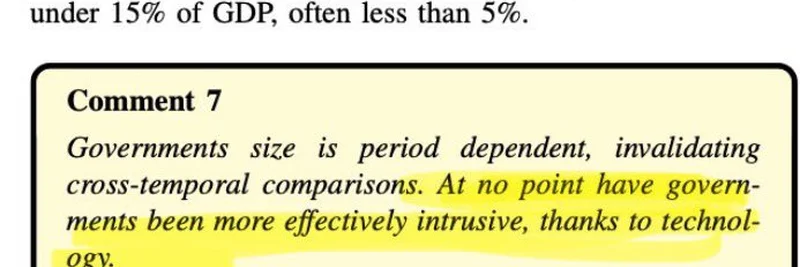In the ever-evolving world of cryptocurrency, privacy remains a hot-button issue, especially as governments worldwide amp up their involvement in financial systems. A recent tweet from Sacha Saint-Leger, a prominent figure in the Zcash community, sheds light on this by responding to Nassim Nicholas Taleb's insightful lecture slides shared on X. Taleb, known for his books like "The Black Swan," outlined seven key points about the current state of our world, with a particular emphasis on the expanding role of governments.
Taleb's presentation, delivered at the 2025 Ron Paul Institute Annual Meeting, dives into topics like connectivity, dynamics in geopolitics, economic saturation, immigration, social media's effects, and crucially, the growing intrusion of governments. One slide that stands out discusses how modern governments are far larger and more invasive than historical ones, accounting for 40-50% of GDP in Europe and even higher in places like France when including education and local interventions.
Saint-Leger's response cuts to the chase: "both encrypted messages (signal) and encrypted assets (zcash) are necessary to slow down the trend here in the best case they’ll help reverse it." Here, Zcash—a privacy-centric cryptocurrency that uses zero-knowledge proofs to shield transaction details—emerges as a tool to push back against this encroachment. Unlike transparent blockchains like Bitcoin, where transactions are publicly visible, Zcash allows users to maintain anonymity, making it harder for authorities to track financial flows.
This conversation is particularly relevant for the meme token ecosystem. Meme tokens, often born from viral internet culture and community-driven hype, thrive on pseudonymity and freedom from traditional financial oversight. Think about how projects like Dogecoin or newer Solana-based memes rely on anonymous creators and holders to build momentum without interference. As governments tighten regulations—demanding KYC (Know Your Customer) compliance or monitoring wallets—privacy tools become essential to preserve the decentralized spirit of crypto.
Taleb's slides also touch on technology's role in enabling this governmental growth. He notes that cross-temporal comparisons are invalid because tech has made intrusions more effective. In the past, a small government couldn't control much, but today, with surveillance tech and data analytics, even "limited" governments wield unprecedented power. This echoes concerns in the crypto space about CBDCs (Central Bank Digital Currencies) and chain analysis firms that help track illicit activities but also infringe on personal privacy.
For blockchain practitioners dipping into meme tokens, understanding these dynamics is key. Privacy coins like Zcash aren't just for hiding; they're about reclaiming financial sovereignty. Integrating Zcash-like features into meme token protocols—perhaps through layer-2 solutions or privacy mixers—could shield communities from overreach while fostering innovation.
The thread has sparked replies emphasizing privacy's importance. One user shared a story from Albania's communist era, highlighting how modern tech enables far more surveillance than old-school methods. Another pointed out that without privacy, the slope toward total control gets steeper. Even in the meme world, where fun and gains often take center stage, these tools ensure that the party isn't crashed by unwanted guests.
As we navigate this landscape, resources like Zcash's official site offer deep dives into how shielded transactions work. For meme enthusiasts, exploring privacy-enhanced platforms on chains like Solana—which Saint-Leger mentions in a reply as a potential helper via devices like the Solana phone—could be the next step.
In summary, this exchange between Taleb and Saint-Leger underscores a critical juncture for crypto: leverage privacy tech to counterbalance growing state influence, ensuring that meme tokens and broader blockchain innovations remain accessible and free. Stay tuned to Meme Insider for more on how these trends impact your favorite viral coins.



